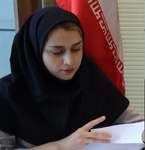Saudi Arabia, Egypt, the United Arab Emirates, Yemen, Libya, Bahrain, and Maldives severed their ties with Qatar on Monday, accusing it of supporting terrorism and opening up rift in years among some of the states in the Arab world.
The internationally acknowledged energy consultant Chris Cook addresses in this exclusive interview to Mehr News, the impacts and consequences of the split between Doha and its closest allies, saying it can have repercussions around the Middle East, where Persian Gulf states have used their financial and political power to influence events in Libya, Egypt, Syria, Iraq and Yemen.
He discussed that the al-Sauds can no longer rely upon US support unconditionally, and they have lost the chance to pivot to the EU instead.
"This is because the EU recognizes where the roots of terrorism actually lie and are focusing on Iran and Caspian nations in pursuit of a Petroeuro to rival the Petrodollar," Cook underlined.
Here is the full text of his answers to Mehr News' Lachin Rezaian:
How do you evaluate the cutting ties of Saudi and others with Qatar?
Qatar has been pursuing an independent and adventurist foreign policy which was clearly in line with and executing the Obama administration's regional foreign policy. Current events reflect the emergence of the Trump administration's policy, but this is as yet too incoherent to discern any organizing principle beyond increased sympathy to Israel and increased antipathy to Iran.
What do you think are the reasons behind Riyadh's move against Doha? Do you think US president’s recent trip to Riyadh has set the stage for the conflict? Does US pull the strings, in the situation that immediately after the move, US Secretary of State Rex Tillerson told reporters in Sydney on Monday that the spat would not affect the fight against terrorist militants and that Washington has encouraged its [Persian] Gulf allies to resolve their differences?
US definitely pulls the strings in Qatar, a fact reinforced by the massive - and geostrategically crucial - US military base there which Israel and Saudi Arabia have been agitating to remove. The US relationship with Saudi Arabia on the other hand, changed beyond recognition during the Obama administration, due in my view to a deliberate and very smart policy to support the oil price between 2009 and 2014 at levels high enough to develop US shale oil and gas, funded by the petrodollars, which resulted from high prices.
In simple terms, the al-Sauds can no longer - post US shale - rely upon US support unconditionally, and they have lost the chance to pivot to the EU instead. This is because the EU recognizes where the roots of terrorism actually lie and are focusing on Iran and Caspian nations in pursuit of a Petroeuro to rival the Petrodollar.
The so-called fight against militants has of course, as Iran well knows, been a sham throughout since both the Saudis and Qataris were funding and supporting logistically different factions, while US support of the Muslim Brotherhood was against Saudi wishes. As with the failed State/CIA-backed Gulenist coup in Turkey, the US aim was to create a region of compliant and non-nationalist neo-Islamist governments allowing US corporations access on privileged terms.
What would be the financial and economic consequences of cutting ties to Qatar?
Saudi Arabia has much more to lose from cutting ties than does Qatar for as long as Qatar retains its strategic relationships with the US and India in particular, noting here that 90% of India's natural gas comes from Qatar, while 650,000 Indians work in Qatar.
What would be the repercussions of cutting ties for the regional stability and security?
This depends upon US strategy. If the US pulls out and abandons Qatar to Saudi control that would have a very negative regional impact. However, there are other constructive strategic policy options available in which Iran could take a lead.
More than half a dozen Arab nations have cut ties with Qatar. Would any other states join the move against Doha?
Possibly, but I don''t think it would have more than a cosmetic effect.
How do you evaluate the international reactions to the conflict?
Only arms manufacturers and their financiers have an interest in conflict, and the scope for energy diplomacy is clear. Certainly Qatar's LNG customers can be expected to support them, particularly India and China.
I believe that the US presence in Qatar is pivotal to their regional energy strategy and that they will maintain it. I think that Trump's genuine anti-ISIL/Islamist policy will finally bury Obama's destructive Qatari-sponsored adventurism, and there is now a window of opportunity for constructive energy diplomacy for which Trump may take the credit (he has no motivation other than taking the credit for successul policy).
Iran is very well placed to make constructive and collaborative Natural Grid proposals for least resource cost energy development - using regional energy swaps and energy instruments - to fund reduction of the staggering cost of wasted energy resources. There is no reason why even Saudi Arabia, no matter what their ideological differences with Iran and others, would not cooperate in such an initiative.
Chris Cook is a Senior Research Fellow at the Institute for Security and Resilience Studies at University College London. Chris was director at the International Petroleum Exchange IPE. IPE is known for trading Brent Crude until 2005. Chris Cook was originator of the Iranian oil bourse.
Interview by Lachin Rezaian


























Your Comment